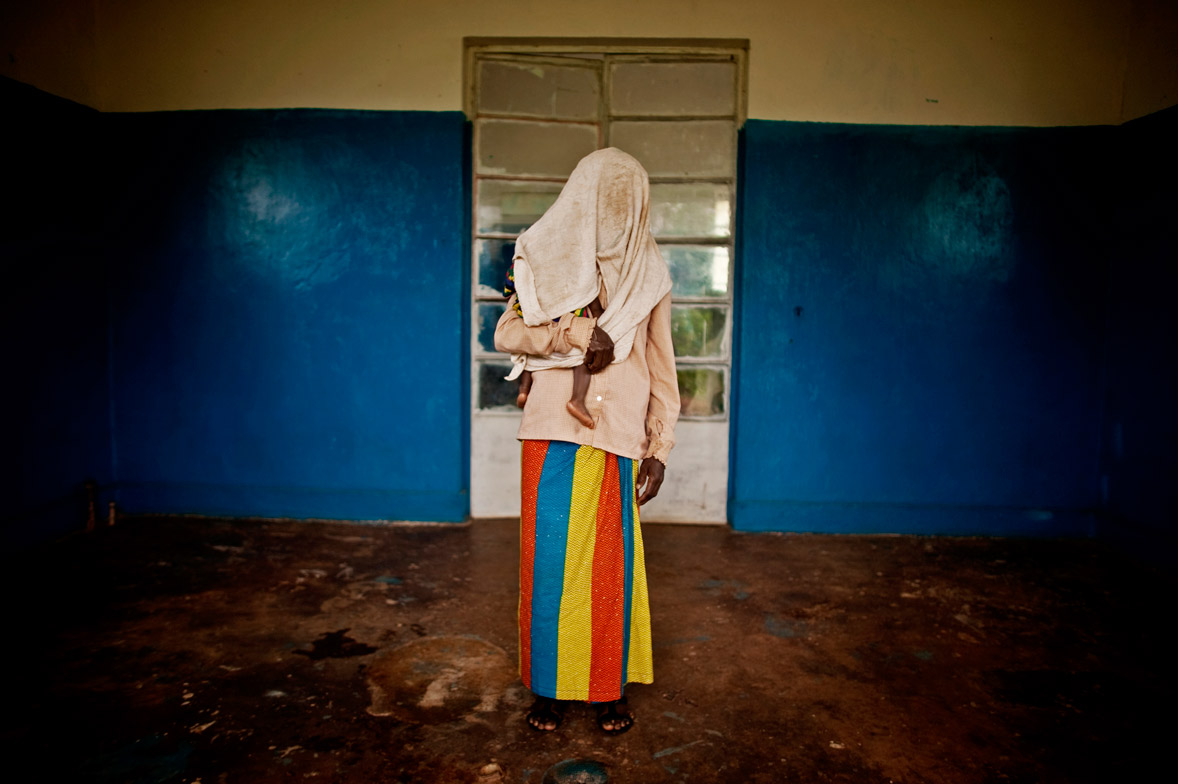
The women in these photos are among the nearly 50 women who described their brutalization and rape by a unit of Congolese soldiers who attacked Fizi, D.R.C. on Jan. 1, 2011. The women’s identities have been concealed for security reasons and because rape carries strong social stigma. Their anguished stories ended with the soldiers’ trial, held in a makeshift courtroom in the lakeside village of Baraka on Feb. 21, 2011. This was the highest-profile sexual-violence case ever tried in the Central African country, and it brought a landmark verdict in a nation where thousands are believed to be raped each year by soldiers and militia groups that often go unpunished. Ten of the eleven accused soldiers, including Lieut. Colonel Mutuare Daniel Kibibi, were found guilty of crimes against humanity. The highest-ranking Congolese army officer to be convicted of such crimes, Kibibi was sentenced to 20 years in prison — as was each of the soldiers under his command.
Associate Press Photographer Pete Muller, who took the pictures, believes these portraits honor the quiet defiance he found among many rape survivors in Fizi. He says “Despite their faces being concealed so dramatically, I feel that each woman’s willingness to appear in the series represents a level of resistance to the intimidation and violence they endure on a daily basis.”
Muller took a sensitive approach when making the photographs, he explains “Once we had established the condition of relative anonymity for the women, dozens of rape survivors were eager to pose for portraits. They moved quietly to the center of the room and waited patiently for me to work. In many instances, I was required to use my hands to make minor adjustments to their stance and location. Their faces were already covered and, given the horrible experiences they’d so recently endured at the hands of men, I felt overwhelming pressure to guide them as delicately as possible. I moved them gently by their shoulders and spoke softly in KiSwahili, a common language in eastern Congo. I felt the weight of crimes committed by fellow men and, in those moments, felt ashamed to be part of the group.”
To Muller, the pictures deliver a powerful message, “we’re still here, despite your efforts to shame and destroy us, we’re still standing.”
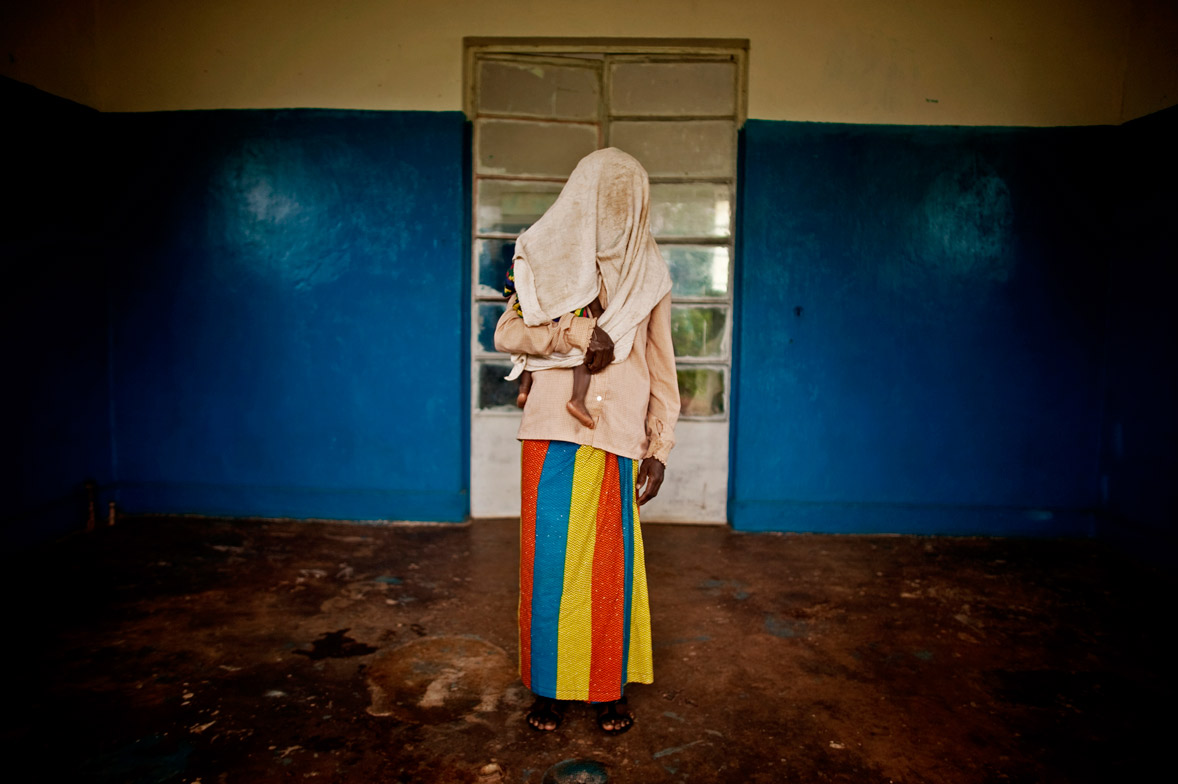
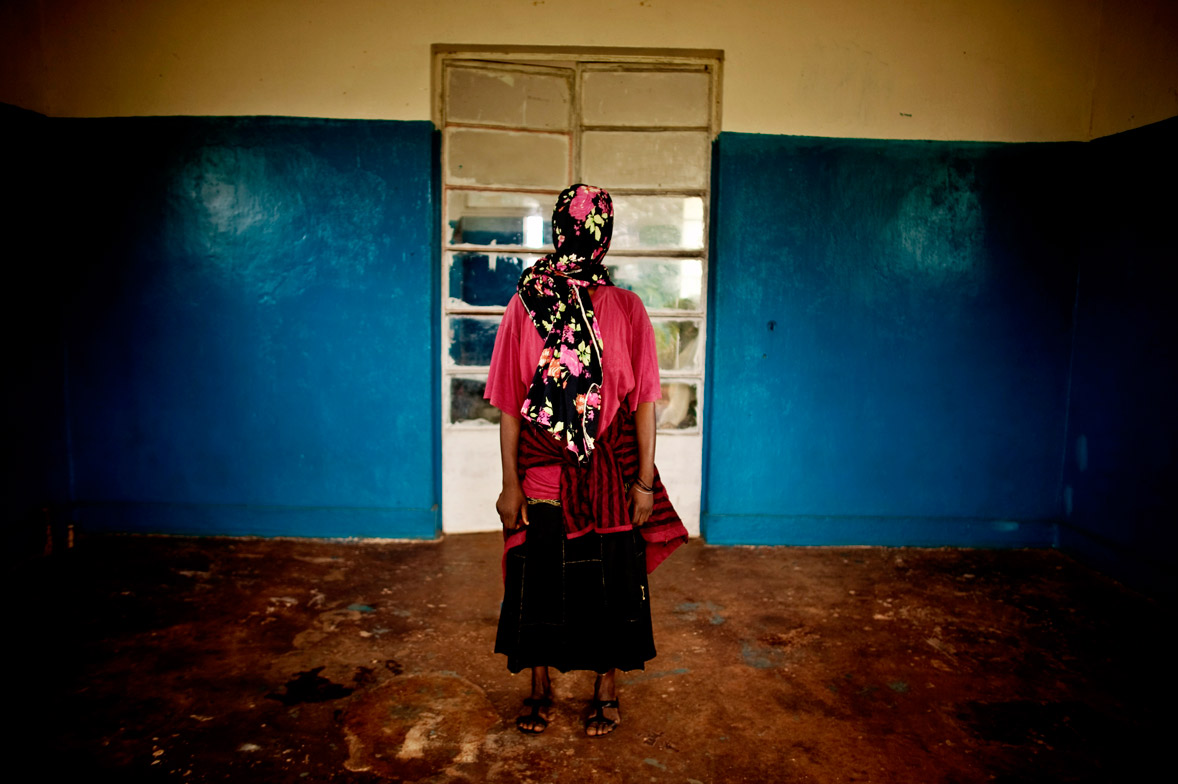
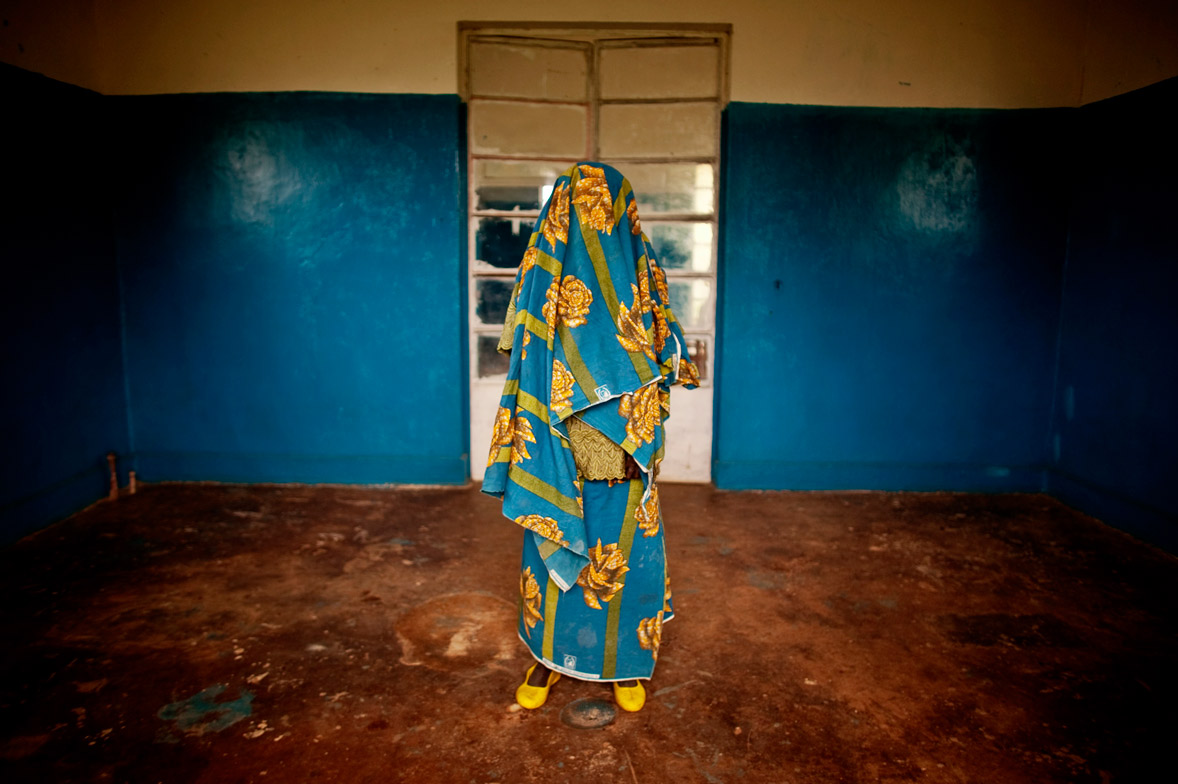
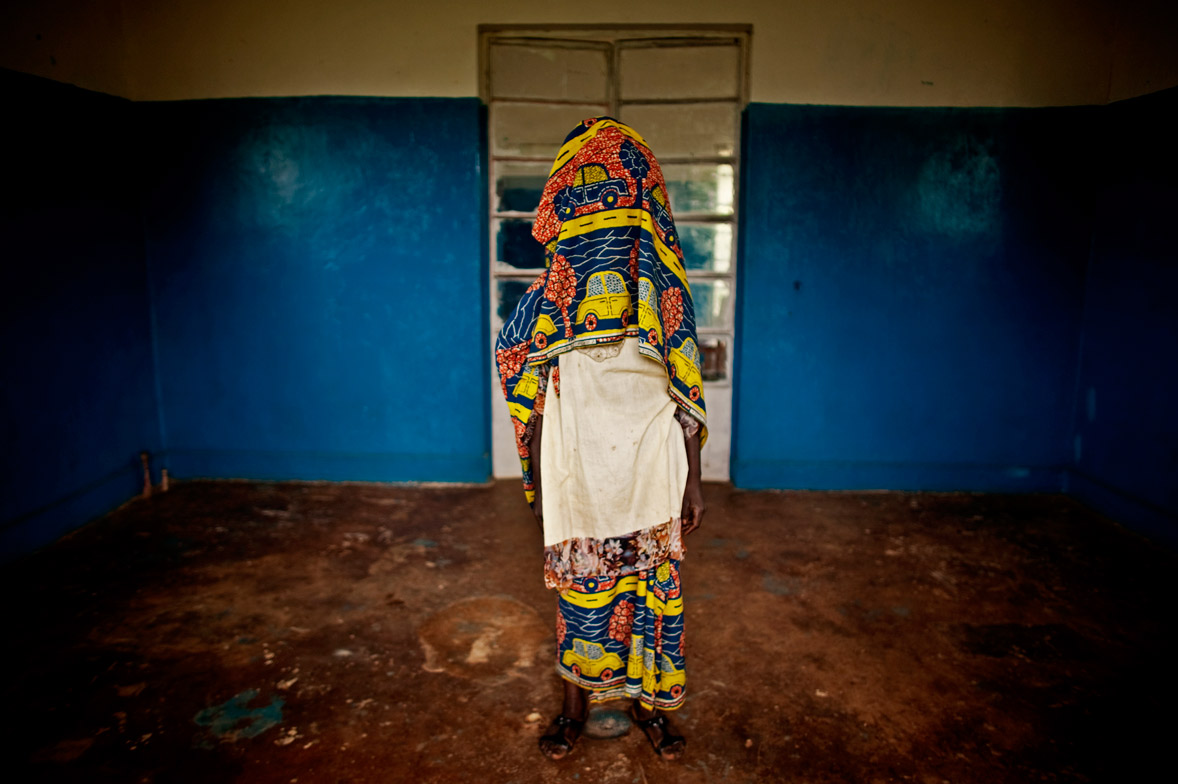
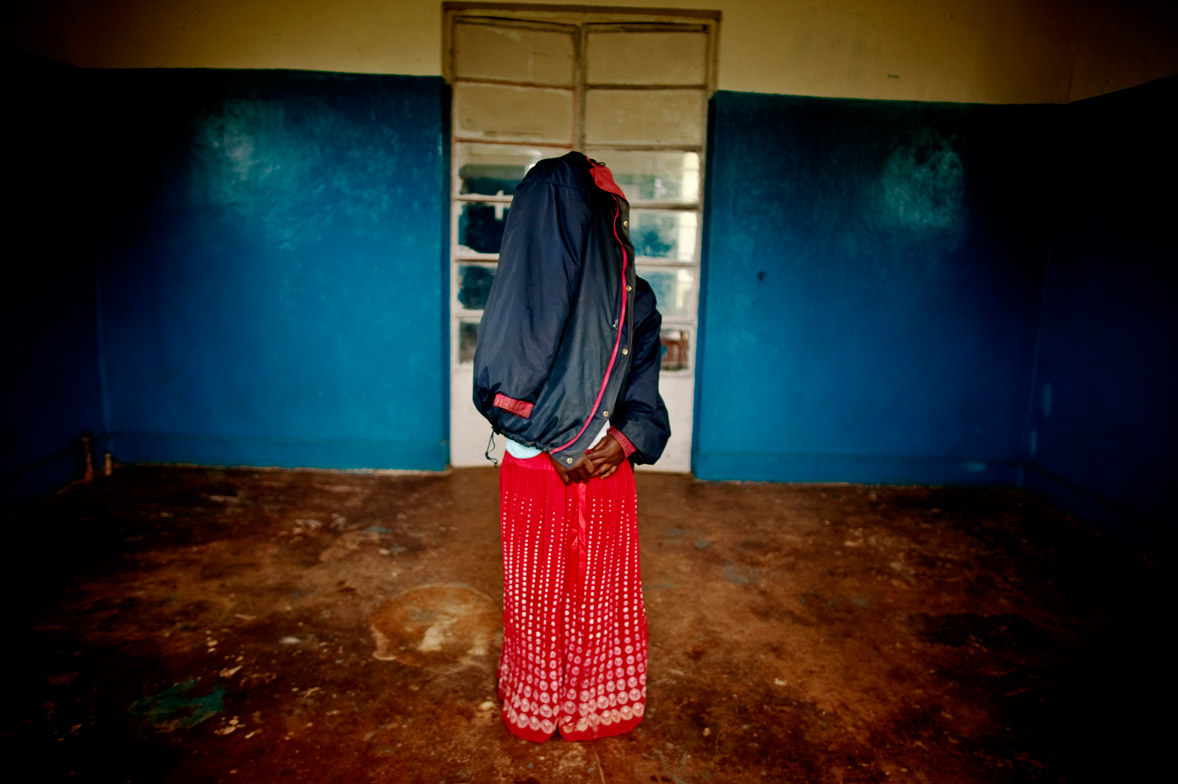
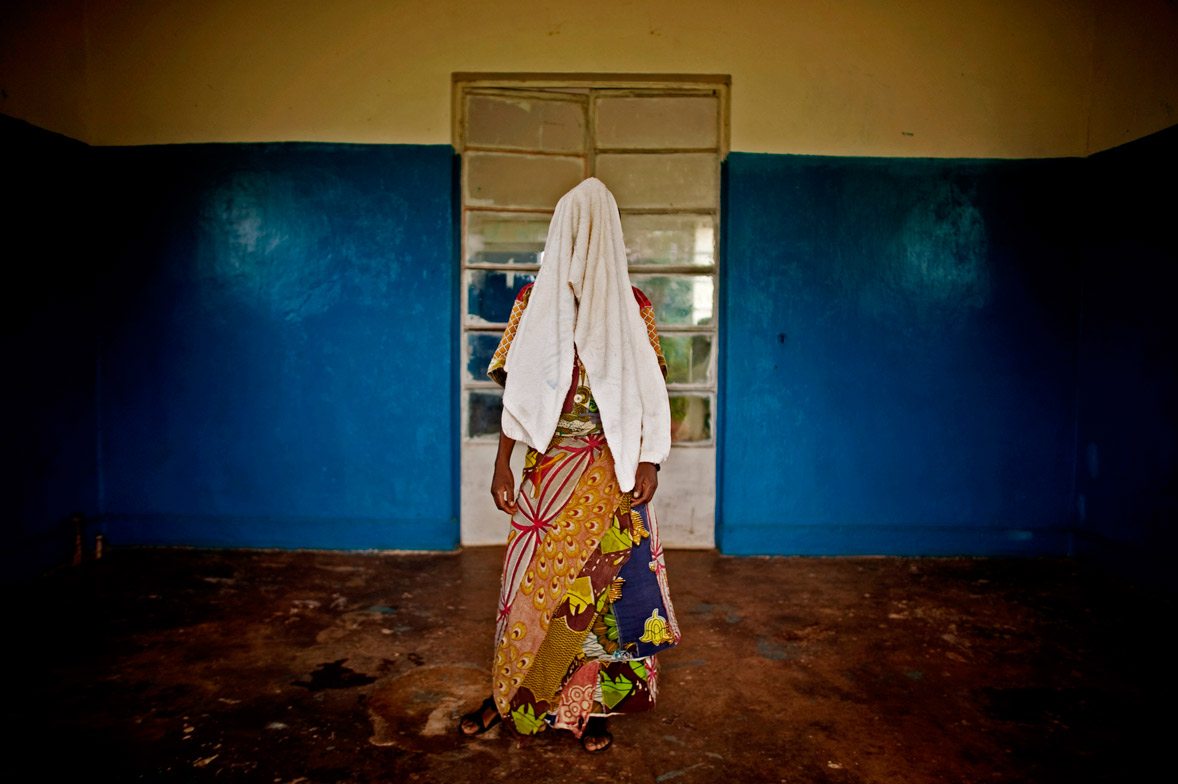
More Must-Reads From TIME
- The 100 Most Influential People of 2024
- The Revolution of Yulia Navalnaya
- 6 Compliments That Land Every Time
- Stop Looking for Your Forever Home
- If You're Dating Right Now , You're Brave: Column
- The AI That Could Heal a Divided Internet
- Fallout Is a Brilliant Model for the Future of Video Game Adaptations
- Want Weekly Recs on What to Watch, Read, and More? Sign Up for Worth Your Time
Contact us at letters@time.com